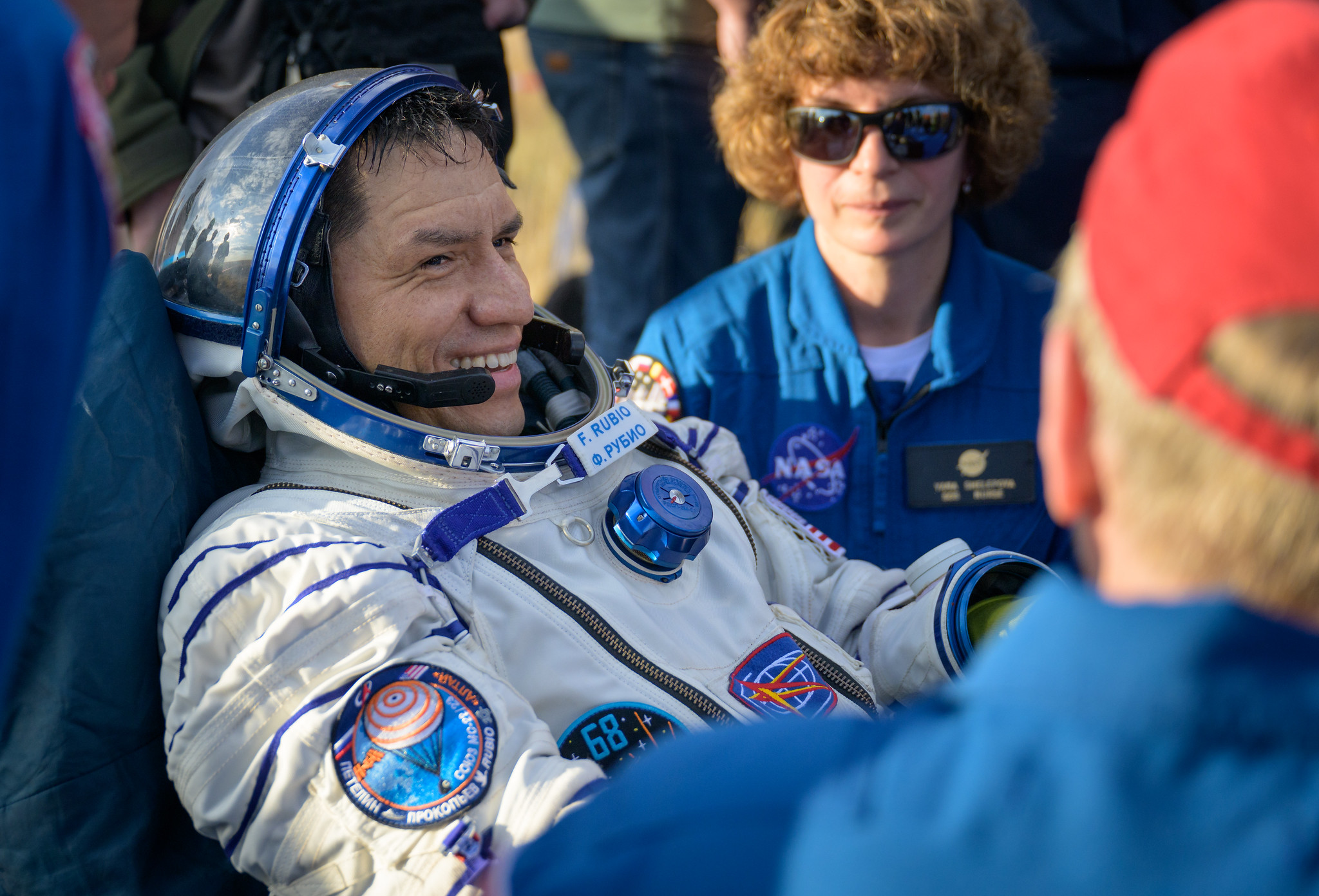
NASA astronaut Frank Rubio, back on Earth after breaking the record for the longest single spaceflight in history by an American, will participate in a news conference at 2 p.m. EDT Friday, Oct. 13, at the agency’s Johnson Space Center in Houston.
The news conference will air live on NASA Television, the NASA app, and the agency’s website. Watch online at:
Rubio’s extended mission aboard the International Space Station led to a total of 371 days in space. Extended missions provide researchers the opportunity to better observe the effects of long-duration spaceflight on astronauts as the agency returns to the Moon with the Artemis missions and prepares for human exploration of Mars.
Media interested in participating in person must contact the NASA Johnson newsroom no later than 5 p.m. Thursday, Oct. 12, by calling 281-483-5111 or emailing: jsccommu@mail.nasa.gov. Media wishing to participate virtually must contact the newsroom no later than two hours before the start of the event. NASA’s media accreditation policy is available online. Questions may also be submitted on social media by using #AskNASA.
Rubio launched Sept. 21, 2022, alongside Roscosmos cosmonauts Sergey Prokopyev and Dmitri Petelin. The trio returned to Earth Sept. 27. The 371 day-mission is the longest single spaceflight by a U.S. astronaut, a record previously held by NASA astronaut Mark Vande Hei with 355 days.
Rubio completed approximately 5,936 orbits of the Earth and a journey of more than 157 million miles during his first spaceflight, roughly the equivalent of 328 trips to the Moon and back. He witnessed the arrival of 15 visiting spacecraft and the departure of 14 visiting spacecraft, including both crewed and cargo missions.
During his record-breaking mission, Rubio spent many hours contributing to scientific activities aboard the orbiting laboratory, conducting everything from human health studies to plant research. One study evaluated the command of multiple autonomous robots from space and what challenges might exist for orbit-to-ground remote operation of robots. He also tended to space tomatoes to test hydroponic (water-based) and aeroponic (air-based) growth techniques rather than soil or other traditional growth media to help identify ways to produce crops on a larger scale for future space missions.
Get the latest NASA space station news, images and features on Instagram, Facebook, and X.
Keep up with the International Space Station, its research, and crew at:
-end-
Lora Bleacher / Julian Coltre
Headquarters, Washington
202-358-1100
lora.v.bleacher@nasa.gov / julian.n.coltre@nasa.gov
Courtney Beasley
Johnson Space Center, Houston
281-483-5111
courtney.m.beasley@nasa.gov
from NASA https://ift.tt/Twy0k19


No comments:
Post a Comment